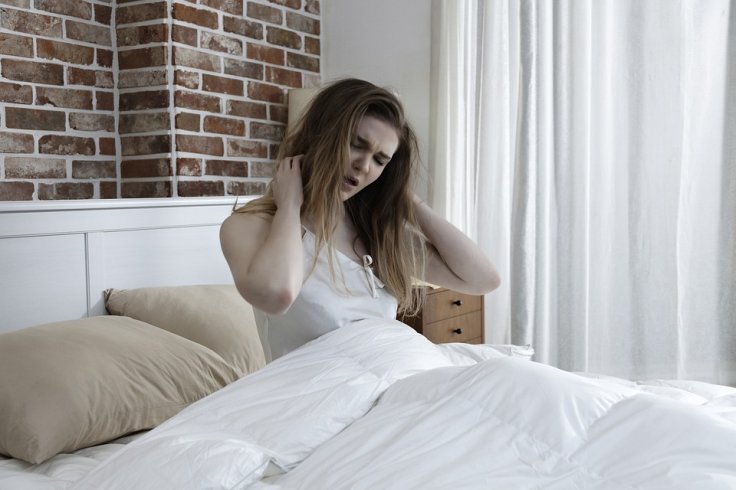In a new study, published in the Journal of the American Heart Association, researchers have revealed that women who sleep poorly tend to overeat and consume a lower-quality diet.
A team of scientists at Columbia University Irving Medical Center believe that the study findings will provide new insight into how poor sleep quality can increase the risk of heart disease and obesity and points to possible interventions for improving women's heart health.

There are several previous studies that suggested that people who get less sleep are more likely to develop obesity, type 2 diabetes, and heart disease -- and that the relationship may be partially explained by diet. But these studies were narrowly focused on specific foods or nutrients (such as fish, sweets, or saturated fat) or only measured sleep duration, not sleep quality.
The researchers designed the new study of nearly 500 women specially to get a more comprehensive picture in women by examining associations between overall diet quality and multiple aspects of sleep quality.
Women prone to sleep disturbances
Brooke Aggarwal, assistant professor of medical sciences at Columbia University Vagelos College of Physicians and Surgeons and senior author of the study, said: "Women are particularly prone to sleep disturbances across the life span, because they often shoulder the responsibilities of caring for children and family and, later, because of menopausal hormones."
The researchers collected data of an ethnically diverse group of 495 women, aged between 20 to 76 years, and analysed their sleep and eating habits for the study that looked at sleep quality, the time it took to fall asleep, and insomnia. The scientists also questioned the women about the types and amounts of foods they typically eat throughout the year to measure their typical dietary patterns.
Like previous studies, the new reports also stated that those women with worse overall sleep quality consumed more of the added sugars associated with obesity and diabetes. It also noted that women who took longer to fall asleep had higher caloric intake and ate more food by weight.
Women, who have more severe insomnia symptoms, consumed more food by weight and fewer unsaturated fats than women with milder insomnia. "Our interpretation is that women with poor-quality sleep could be overeating during subsequent meals and making more unhealthy food choices," said Aggarwal.
How can poor sleep contribute to poor eating?
However, the question remains the same that how can poor sleep contribute to poor eating. Faris Zuraikat, PhD, postdoctoral fellow at Columbia University Vagelos College of Physicians and Surgeons and lead author of the study, said: "Poor sleep quality may lead to excessive food and calorie intake by stimulating hunger signals or suppressing signals of fullness."
"Fullness is largely affected by the weight or volume of food consumed, and it could be that women with insomnia consume a greater amount of food in an effort to feel full. However, it's also possible that poor diet has a negative impact on women's sleep quality. Eating more could also cause gastrointestinal discomfort, for instance, making it harder to fall asleep or remain asleep," Zuraikat added.
"Given that poor diet and overeating may lead to obesity--a well-established risk factor for heart disease--future studies should test whether therapies that improve sleep quality can promote cardiometabolic health in women," said Aggarwal.









